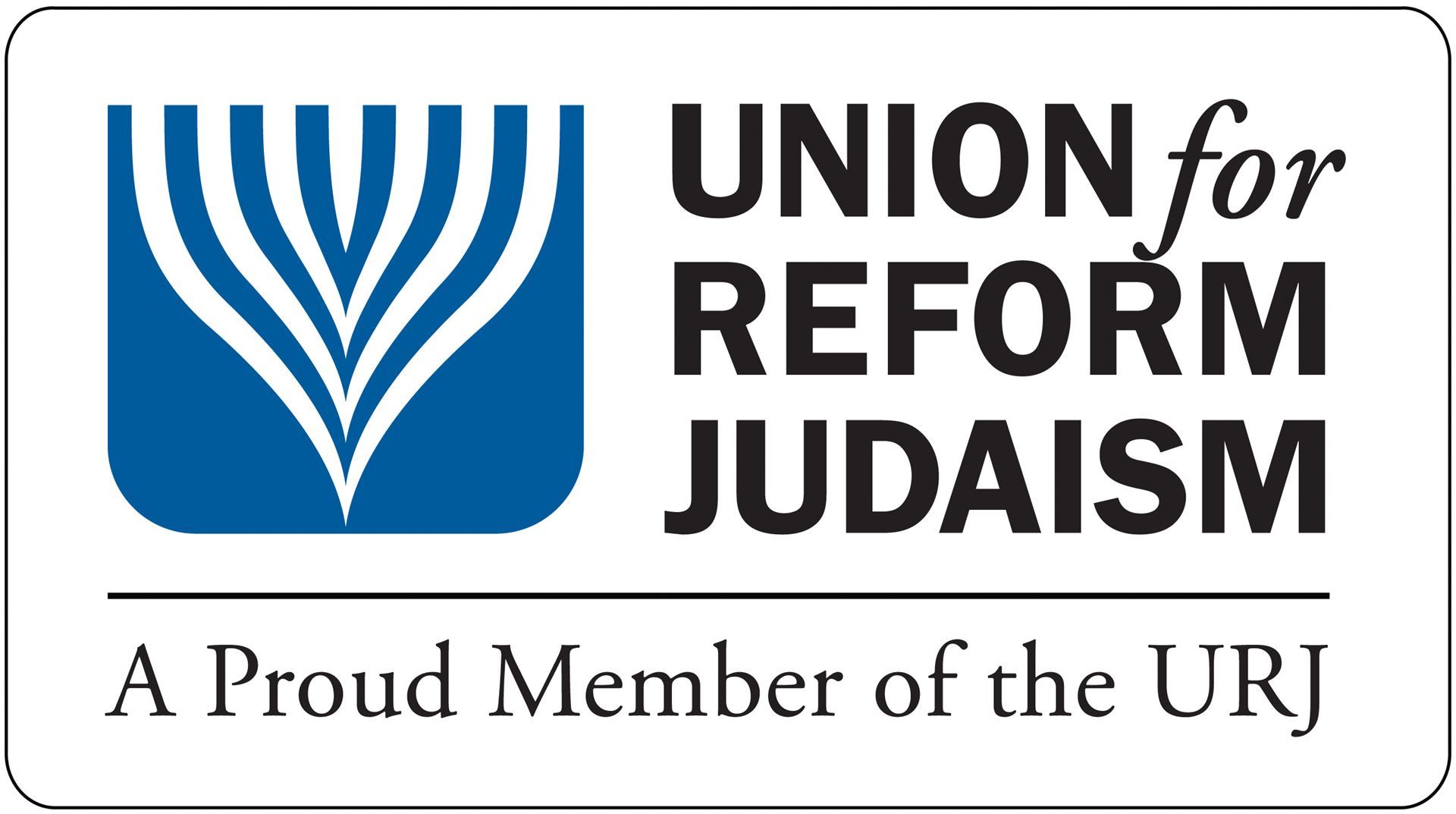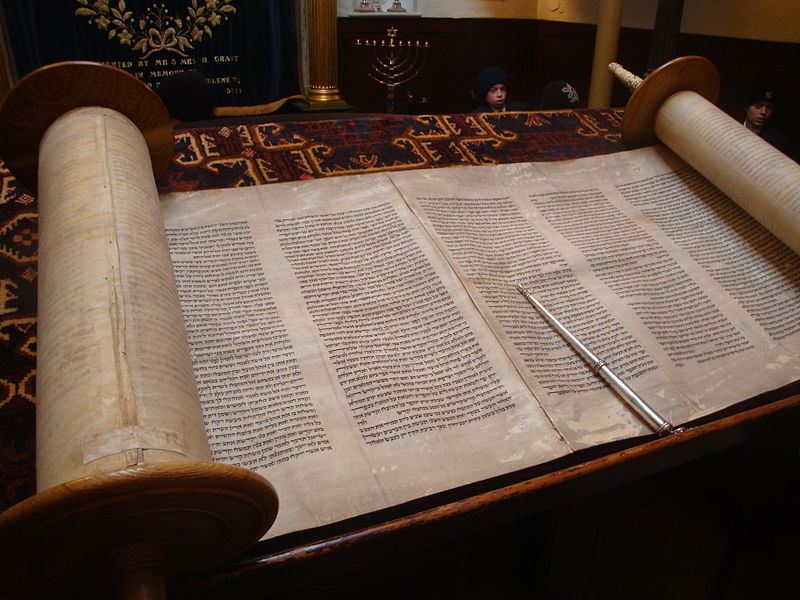
Rosh Hashanah and Yom Kippur
| Rosh Hashanah and Yom Kippur are often referred to as the High Holy Days. Rosh Hashanah is the New Year of the Jewish calendar, and it marks the beginning of a ten-day period of reflection and introspection, also known as the Days of Awe, that concludes with Yom Kippur, traditionally a day of fasting, reflection, and prayer. Adas Emuno celebrates Rosh Hashanah with a variety of services. An evening service marking Erev Rosh Hashanah welcomes the holiday, and a morning service follows on the first day of Rosh Hashanah. Our younger members and their families worship with a special and meaningful Family Service in the afternoon, which is also open to the community. Following the Family Service, the entire congregation is invited to participate in a Tashlich service and potluck picnic in Leonia's Overpeck Park. During Tashlich, we cast crumbs into water to symbolize the casting off of sins, that is, the desire to atone for wrongdoing and start the year afresh. Links to learn more about the High Holy Days: |
Our Family Services for Rosh Hashanah and Yom Kippur are open to the community and do not require tickets of admission. Admission to all other high holiday services is by ticket only. Members in good standing receive tickets in the mail. Tickets to all other services are available for purchase by members who wish to bring their extended family members and by the unaffiliated in the surrounding community. For more information about the High Holy Days at Adas Emuno, including schedules and links to sermons, click here. If you are interested in purchasing High Holiday tickets contact us. The Festivals |
Sukkot Sukkot is a joyous festival of thanksgiving that follows five days after Yom Kippur. Each year, we prepare to celebrate Sukkot at Adas Emuno by building our own sukkah, a booth or hut, on temple grounds between our Synagogue and Religious School buildings, and the sukkah is then decorated by our Religious School students. Traditionally, the festival of Sukkot lasts for seven days, and during this period we have special events that include Pizza in the Hut, and a singalong night led by talented members of the Congregation. During the weeklong holiday, families are welcome to come and eat meals in our sukkah, and even spend an evening under the stars. Link to learn more: Sukkot |
|
| Simchat Torah Simchat Torah comes at the end of the week-long Sukkot festival, in conjunction with the traditional observance of Sh'mini Atzeret. This holiday is a joyous celebration of the Torah, which we also call our Tree of Life. On Simchat Torah, singing and dancing accompany a parade of Torah scrolls throughout the sanctuary. The Torah service includes the reading of the very last section of the Torah, the end of D'varim or the Book of Deuteronomy, then the beginning of Bereisheet, the Book of Genesis. Our observance of this holiday also includes a welcoming and consecration of our new Religious School students, with music and treats that will delight our returning students as well, and all of our congregants, young and old! Link to learn more: Simchat Torah |
Passover Pesach or Passover is the weeklong festival celebrating the Jewish people's redemption from Egyptian bondage. This most ancient of Jewish holidays recognizes the rebirth associated with the season of Spring together with the remembrance of the Exodus. Pesach begins with the seder service traditionally held in the home, and observance includes eating matzah and avoiding chametz (food containing leavening). Depending on interest and availability, Adas Emuno has held congregational seders in our Social Hall, and Seder Match-Up programs where any congregant who does not have a seder to attend is matched up with a temple family who would love to have guests at their seder. Other activities and resources are made available to our congregants, and for our Religious School students. Link to learn more: Pesach |
|
Shavuot Shavuot is the festival commemorating the giving of the Torah at Mount Sinai, and marking the end of the season of Spring. Our celebration of Shavuot includes the Confirmation ceremony, honoring the graduates of our Religious School. Link to learn more: Shavuot |
Other Holidays |
Hanukkah Hanukkah is also known as the Festival of Lights, although it is traditionally considered a minor holiday. Hanukkah is mostly celebrated in the home, but Congregation Adas Emuno also hosts the Community Outdoor Menorah lighting, with another light added on each night at 7 PM, followed by a song and a story. On the Friday night of Hanukkah, we observe our special Hanukkah Shabbat, and congregants are welcome to bring their own hanukkiah (Hanukkah menorah) to light the candles together. On the Saturday evening of Hanukkah, we hold our annual Hanukkah party, with dreidels, gelt, and lots of latkes and sufganiyot (jelly doughnuts). On the Sunday of Hanukkah, our Religious School celebrates as well, with food and fun and games. Link to learn more: Hanukkah |
|
| Purim Purim is another minor holiday that is a major source of fun, as we celebrate the story of Queen Esther. We celebrate Purim with the reading of the Megillah or Book of Esther, and with our annual Purim spiel, a comedic musical play. The Jewish equivalent of the Mardi Gras, Purim is a topsy-turvy time when decorum is abandoned, as we boo and make noise whenever the name of the villain Haman is uttered, cheer for our heroes Esther and Mordecai, sing songs, and otherwise eat, drink, and make merry. Purim resembles Halloween in that everyone, children especially are encouraged to come in costume, especially in the guise of one of the characters from the Book of Esther. Purim is a fun time for our Religious School as well, and a Purim Carnival is held in our Social Hall for the benefit of our students and their families. Casting and rehearsals for our annual Purim spiel begin at least a month before Purim. Contact us for more information. For more on our past performances and our original Purim spiel scripts, see our special Purim spiel page. Link to learn more: Purim |
Tu Bishvat Tu Bishvat is the New Year for Trees, or Jewish Arbor Day. We celebrate this holiday with a special service and dessert seder. Like the Passover seder, the Tu B’Shevat seder includes four glasses of wine, each with a different color, and also includes the tasting of many varieties of fruits and nuts. Singing, storytelling, and quizes also are a part of the festivities. Link to learn more: Tu Bishvat | Yom HaShoah Yom HaShoah is Holocaust Remembrance Day. We observe this memorial day for those who died in the Shoah or Holocaust through prayer and reflection, and the sharing of stories from the survivors within our congregation. We say Kaddish for all those for whom there is no one left to say Kaddish, and renew our dedication to their memory, and the pursuit of social justice for all. Link to learn more: Yom HaShoah | Yom HaAtzmaut Yom HaAtzmaut is Israeli Independence Day, marking the establishment of the State of Israel in 1948. As American Jews, we celebrate the rebirth of our ancestral homeland. Yom HaAtzmaut is observed in conjunction with two other holidays, Yom HaZikaron, Israeli Memorial Day, for all those who have fallen in the War of Independence and later conflicts, and Yom Yerushalayim, Jersusalem Day. Link to learn more: Yom HaAtzmaut |
*With the exception of the High Holy Days, many of our holiday celebrations take place in conjunction with Shabbat services. |










